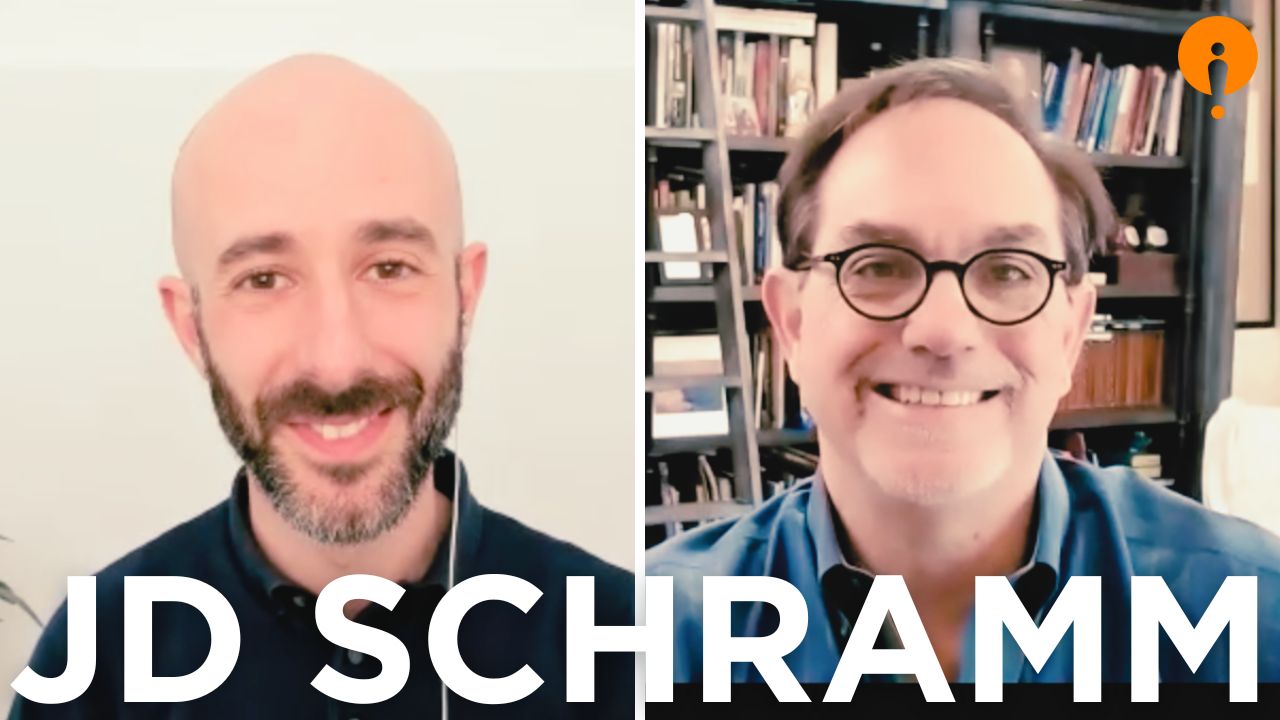
In this episode of the Ideas on Stage podcast we spoke with JD Schramm.
A passionate coach and gifted communicator in his own right, JD Schramm treasures the opportunity to bring out the best in those he teaches, advises, or inspires through his speaking, coaching, and educating. Thousands of students at Stanford, Columbia, NYU, and USC have benefited from his hallmark style of teaching and rigorous feedback to help them speak with conviction and write for impact.
JD is also an accomplished author; his book Communicate with Mastery gives readers a rich treasure trove of frameworks and tools for leadership communication.
In this episode we talked about how to communicate with mastery.
Transcript
JD, what will listeners get from this conversation?
Communication is a skill that can be improved, much like playing golf or cooking. Many people think it’s an innate talent, but it’s actually a skill that can be developed. I will share some skills that can help improve communication, whether it’s to one person or a thousand.
Can you give a gist of your book “Communicate with Mastery”?
My book focuses on mastery, which means getting better at something that matters. Mastery is about continuous improvement and not aiming for perfection but getting better incrementally. For example, a speaker I worked with improved her eye contact gradually over time. It’s about getting a little better each time and recognising these small improvements.
Can you provide examples of how effective communication can inspire action?
I worked with a data scientist who initially presented data dumps. By transforming these into engaging data narratives with clear headlines and explanations, he helped his audience make decisions and take action based on the data. Effective communication is not just about sharing information; it’s about inspiring action.
What are some common mistakes people make in communication?
A common mistake is that experts often explain concepts at their level of understanding, which can alienate their audience. It’s important to use analogies and stories to make complex information accessible. Also, focusing too much on entertaining without delivering actionable messages is a missed opportunity.
Can you talk about the AIM framework?
The AIM framework stands for Audience, Intent, and Message. Understanding the audience and the intent behind the communication is crucial before crafting the message. This framework helps ensure the communication is clear and effective.
Are there any other tips or habits for refining our communication skills?
Recording and reviewing your presentations is essential to identify areas for improvement. This practice is similar to how athletes review their performances to improve their techniques.
Can you share a personal story about the impact of effective communication?
I survived a suicide attempt, and my TED Talk on this subject aimed to inspire more open conversations about mental health and suicide. The talk has helped many others, showing the importance of breaking the silence around mental health issues.
Beyond your book, are there other resources you recommend for improving communication?
I recommend “Think Faster, Talk Smarter” by Matt Abrahams for impromptu communication and “Supercommunicators” by Charles Duhigg for understanding the purpose of communication. These books provide practical frameworks and insights for improving your communication skills.
Is there a question I didn’t ask that you wish I had?
You covered the topic beautifully, Andrea. I guess the one piece I didn’t share is that my children have been instrumental in teaching me about effective communication. As a teacher and speaker, my skills have improved thanks to the insights I’ve gained from raising my three kids. My children have helped me become a better communicator by candidly pointing out my shortcomings.
Available on:
I hope you enjoy it!

Want to learn more?
- Read Confident Presenter and Business Presentation Revolution
- To make the most of the book, take the Confident Presenter Scorecard to assess your presentation skills in less than 3 minutes
- Attend our free, live masterclass on all things presentation skills